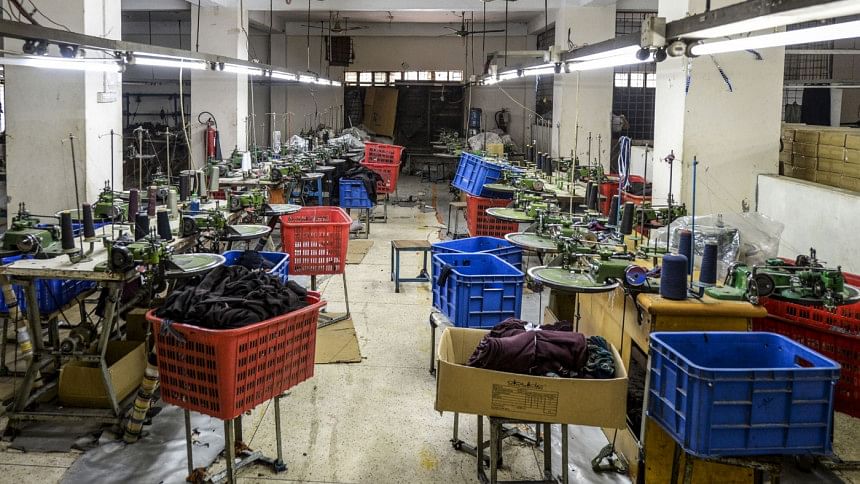Is there an alternative to fast fashion?

At present, the RMG industry in Bangladesh employs around four million people, a large majority of them women with dependent families. During the coronavirus pandemic we have witnessed, first-hand, the devastating impact on these workers if we remove orders from factories. Researchers from the US-based Worker Rights Consortium recently carried out a study which found garment workers are going hungry in apparel supply chains. The WRC surveyed nearly 400 workers across 158 garment factories in 9 countries. The survey respondents reported they are increasingly unable to obtain adequate food for their families—and most workers said they expected the crisis to grow worse in the months ahead.
One only needs to follow the local news in Bangladesh to see that the past nine months have been incredibly difficult for garment workers. And we also know that, as a garment production hub, Bangladesh is far more exposed than its competitors as about 84 percent of our exports are from the garment industry.
Who knows how many jobs will be lost because of this pandemic and who knows how things might play out in 2021? What we do know is that the past few months have given us an insight into what might happen if the global fashion industry decided to switch direction and move away from fast fashion. And it makes for a frightening viewing.
As we all know, there is talk in the global fashion industry of becoming more sustainable by producing clothing which lasts longer, and which is more durable. There is also talk of recycling and the circular economy in the apparel industry.
But if the fast fashion tap is turned off that spells seriously bad news for Bangladesh. Fast fashion might not be great for the environment, but it is brilliant for job creation. It has provided consistent, reliable work for millions of women in Bangladesh. Get rid of fast fashion and move to slow fashion and you shift from an industry which is employing four million workers to one that is employing, say, one million. Perhaps even less. That is the stark reality we are looking at.
The pertinent question is where will the three million of the four million workers employed in the industry go? Their employment in the country's apparel industry has uplifted them from the abyss of poverty and empowered women in a patriarchal society. These workers are mostly unskilled and uneducated—for whom there is no other viable sector in the country to be employed.
Then what will these workers do for money? Let's not pretend that the International Labour Organisation (ILO) or other aid agencies will come to their rescue. Bangladesh has to stand on its own two feet. Take away fast fashion, and it is in serious trouble. Have we, as an industry, thought these things through? It is people and planet, remember.
This is why we all need to be thinking about what the future might hold and how we can move towards an industry which is sustainable as well as which supports jobs for workers. The closest thing I have seen to this is recycling and the circular economy, and the only brand I have seen giving this any serious attention is the Swedish giant, H&M.
H&M is often criticised for developing the fast fashion model but the company has been a true friend to Bangladesh. Moreover, it is the only major retailer which is thinking seriously about how our industry might look 10 years down the line. The company has invested more than any other organisation in supporting the shift towards circular supply chains. For instance, it recently reached a multi-year agreement with the innovative Swedish textile recycling company Renewcell to supply it with thousands of tonnes of its virgin quality Circulose fibres which are made from unusable textile waste. H&M has now invested more than USD 100 million into textile recycling research. This suggests that it is serious—the company is not just doing this as a PR exercise.
Where does Bangladesh fit into all this? First and foremost, Bangladesh needs to be at the forefront of the recycling revolution. If we move away from fast fashion, we need replacement jobs, and this is where they will come from.
This is why I am encouraged by the recent launch of the Circular Fashion Partnership, a cross-sectoral project aimed at supporting the development of the recycling industry in Bangladesh by converting post-production fashion waste into new fashion products and seeking solutions for Covid-19-related build-up of deadstock.
But this is just a one-year partnership, and we need to be thinking long-term here. We need more initiatives like this and we need to think closely about how we can support H&M in its journey towards a circular economy.
The fashion industry generally is under huge pressure to become more sustainable, and customers are driving that. It is our job as a major production hub to support them along that road, by investing in people, technology and processes.
Fast fashion may disappear one day. Let's not allow millions of jobs in Bangladesh to disappear with it. Let's support our customers as they transition towards recycled products which are better for the environment while providing meaningful, financially rewarding work for our garment workers.
Mostafiz Uddin is the Managing Director of Denim Expert Limited. He is also the Founder and CEO of Bangladesh Apparel Exchange (BAE).

 For all latest news, follow The Daily Star's Google News channel.
For all latest news, follow The Daily Star's Google News channel. 



Comments